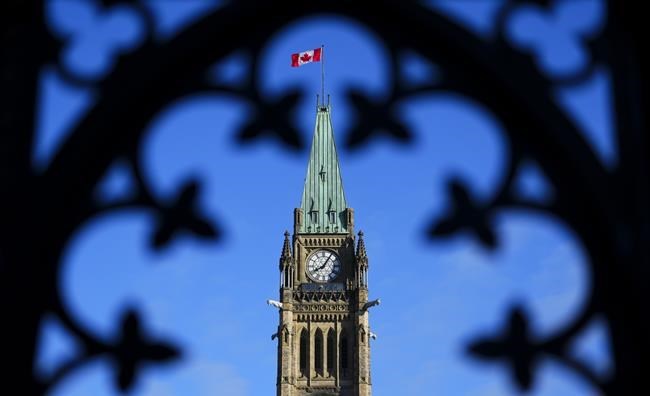OTTAWA — Canada has been pondering a new way to settle First Nation land claims, newly released internal documents show.
In briefing materials prepared for the deputy minister of Crown-Indigenous Relations and Northern Affairs Canada, the federal government also acknowledged issues with the current specific claims process.
Specific claims deal with past wrongs against First Nations by Canada, including the administration of land or other assets.
The July 2022 documents say Canada was mulling over changes to language about modern land surrenders, noting some First Nations are unwilling to settle land claims if they have to do so.
Instead of a modern surrender, federal officials suggested the use of a "promissory estoppel," which is essentially a promise that First Nations won't reignite their cases after they've been settled.
The records were released to The Canadian Press under the Access to Information Act.
The briefing materials say that "until recently," all specific claims settlements concerning improper historical land surrenders included a requirement for a "modern Indian Act surrender" to ensure "legal clarity and finality for Canada."
This modern surrender isn't required by law, or under the Specific Claims Policy.
"Rather it has been the go-to approach for the Government of Canada as the surest way to achieve legal clarity for Canada, First Nations and any third parties with interests in the relevant lands," the documents say.Â
But First Nations have "increasingly objected" to modern surrenders "as a vestige of colonialist laws and policies in Canada," and the insistence on using them has been an "impediment to resolution at other tables as well."
Changing the requirements and implementing a promissory estoppel in place of a modern land surrender wouldn't extinguish the First Nation's interest in the land, "if any." Instead, the First Nation would agree to "forgo any cause of action in relation to the land."Â
This would be included in the text of the settlement agreements.
The federal government says this approach is "consistent with reconciliation objectives" and supports nation-to-nation relationship building.
"It is forward-looking in that it does not seek to correct the historical error through further reliance on a colonial measure that First Nations object to and enables the parties to clearly articulate agreement on the rights and obligations of the parties in relation to the claim lands," the document reads.
It's unclear if Canada has implemented these changes to its processes, as Crown-Indigenous Relations did not respond to The Canadian Press's request for comment by publication time.
Prime Minister Justin Trudeau’s government has put an emphasis on advancing reconciliation, including the settling of specific claims and honouring Canada’s moral and legal obligations with First Nations. While progress has been made, some First Nations organizations say problems continue to exist.
The Union of B.C. Indian Chiefs penned an open letter to former minister of Crown-Indigenous relations Marc Miller in July saying 98 First Nations had been denied specific claims funding for the coming fiscal year.
Canada provides this funding to First Nations to help level the playing field with the resources Canada has as its disposal.
“Many of these First Nations are in the middle of researching and developing their claims and this work must now be put on hold indefinitely” unless funding is provided, the letter reads.
It also calls on the federal government to increase its $12-million budget for specific claims funding, saying there is currently an $18-million shortfall.
In 2016, the federal government committed to working with the Assembly of First Nations to reform the specific claims process.
Currently, Canada follows a policy it created in reviewing specific claims, deciding whether or not to offer negotiations with First Nations. The assembly has often referred to this as a conflict, and saying there needs to be an independent process to handle the claims.
From April 2022 to April of this year, 56 specific claims were settled for $3.5 billion, the federal government says. Sixty-four claims were filed with the minister, and Canada offered to negotiate 58.
Since 1973, the federal government has resolved 665 specific claims with First Nations.
This report by The Canadian Press was first published Aug. 23, 2023.
— With files from Stephanie Taylor
Alessia Passafiume, The Canadian Press




